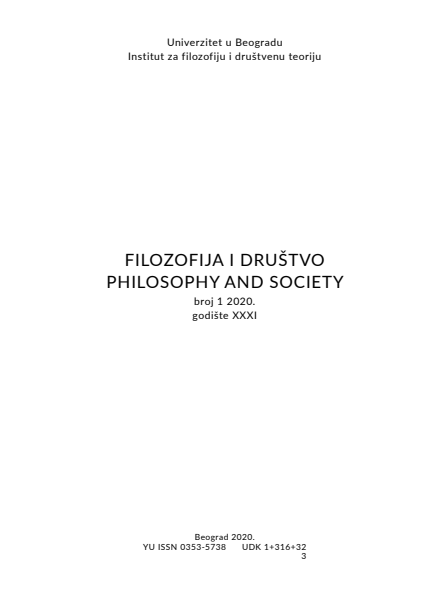PHILOSOPHICAL IMPLICATIONS OF MORRIS’ SEMIOTIC THEORY
PHILOSOPHICAL IMPLICATIONS OF MORRIS’ SEMIOTIC THEORY
Author(s): Miloš BogdanovićSubject(s): Semiotics / Semiology, Semiology, Syntax, Semantics, Pragmatics, Philosophy of Language, Ontology
Published by: Institut za filozofiju i društvenu teoriju
Keywords: semiotics; semantics; syntactic; pragmatics; ontology; pragmatism; sign; semiosis; linguistics; philosophy of language
Summary/Abstract: The subject of this paper is Charles Morris’ semiotic theory that has as one of its major projects the unification of all sciences of signs. However, since the above project has proven to be unsuccessful, we will try to examine here the reasons that led to this. Accordingly, we will argue that to transcend the particularities of individual disciplines that he wanted to unify, Morris had to make certain ontological assumptions, instead of theoretical and methodological ones, that they could share. However, because the ‘sign’ as an ontological category could in our view only be established if we follow the principles of the pragmatic philosophical tradition, we will try to show that the reasons for this failure should be primarily sought in different effects that consistent application of the pragmatic principles has in each of them (primarily in linguistics and the philosophy of language). On the other hand, this should enable us to draw several important conclusions regarding Morris’ project: namely, that his failure does not have to mean giving up semiotics as a potentially key discipline in approaching some fundamental philosophical problems, but also that it would demand return to the original semiotics developed in Peirce’s works.
Journal: Filozofija i društvo
- Issue Year: 31/2020
- Issue No: 1
- Page Range: 108-125
- Page Count: 18
- Language: English

